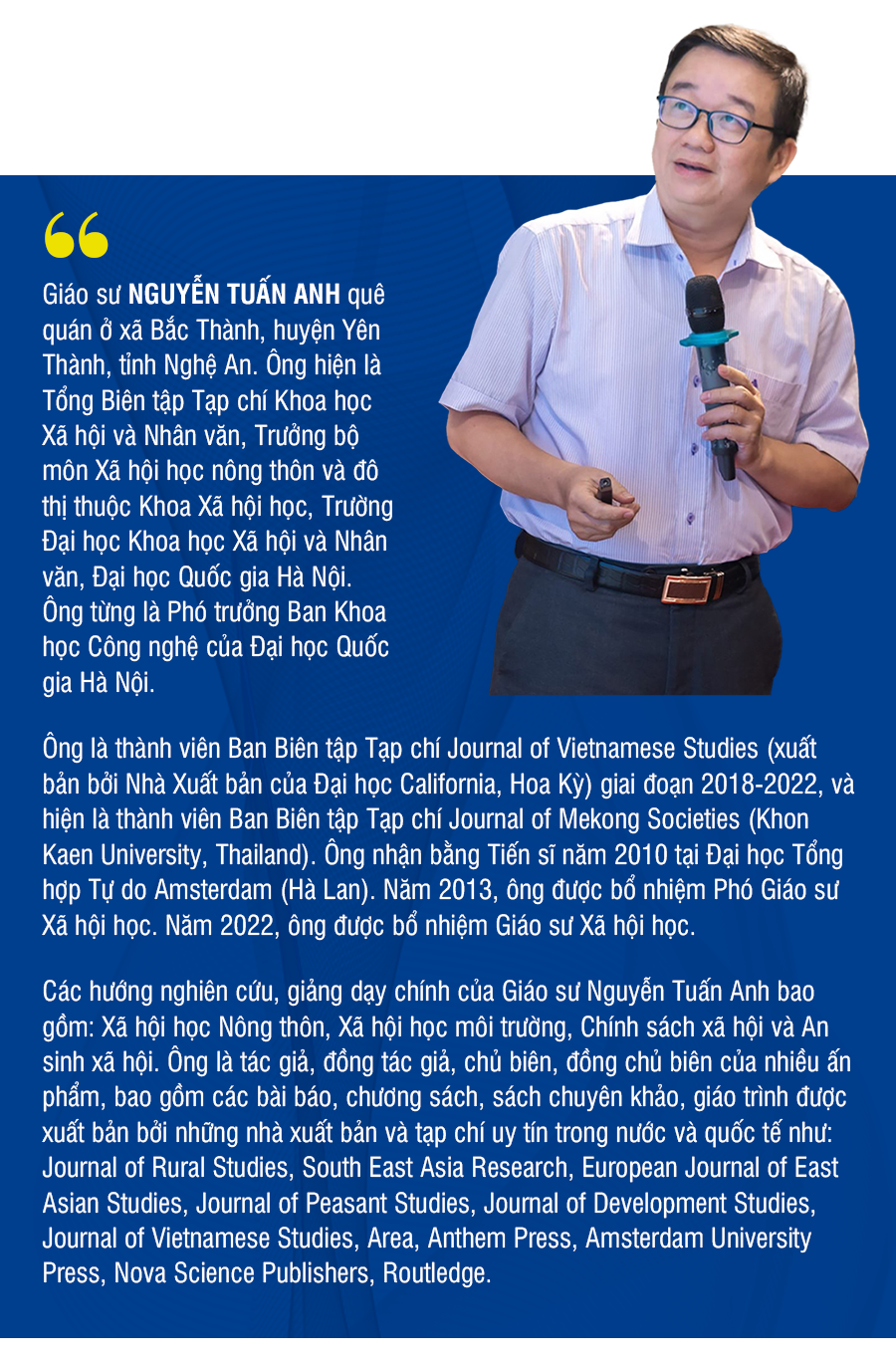
Reporter: As a researcher with many publications domestically and internationally, and a senior lecturer in Sociology, how does the professor evaluate the potential of Nghe An in the current development context, the context of the 4th industrial revolution?
Prof. Dr. Nguyen Tuan Anh:Humanity has entered a new era, the era of the 4th Industrial Revolution. Up to now, the world has gone through four stages of the industrial revolution. The first industrial revolution took place in the 18th century with the invention of the steam engine, allowing people to mass produce goods. The second industrial revolution began in the late 19th and early 20th centuries, with the important feature of producing goods at low cost based on the use of electricity. The third industrial revolution took place around the 1970s through the use of electronics and information technology to automate production. These advances have profoundly changed the traditional way of production and business. The fourth industrial revolution, also known as the fourth industrial revolution, or Industry 4.0, took place around 2010, characterized by rapid technological advancement through the increased use of mobile communications and connectivity based on the internet of things, big data, artificial intelligence, robotics, autonomous vehicles, quantum computing, nano and biotechnology.

The Fourth Industrial Revolution has led to profound changes in the way people live, think and act, the way people relate to each other, and the way people produce goods and services. The Fourth Industrial Revolution brings many opportunities and challenges, with direct and indirect impacts on all sectors of the entire economy. In that context, to achieve the goal of rapid and sustainable development of Nghe An, in addition to economic capital and natural capital, human capital and social capital play an extremely important role.
In the development process of the 4th Industrial Revolution, science, technology and innovation play a key role in economic development. Currently, the value of goods and services produced in different sectors of the economy is largely determined by the crystallized scientific and technological content contained in the goods and services themselves. Therefore, science, technology, innovation together with high-quality human resources, specifically expressed through human capital, meaning the spirit and intelligence, knowledge and skills, experience and proficiency in the work of the human resource team, become the most important input of the modern production process. This is the factor that determines the speed and quality of development of the national and local economies.

In terms of human capital, Nghe An has great potential. From ancient times to the present, Nghe An has been considered a "land of learning", a land of talented people, a land of literature and examinations, a land where learning is always respected and always put first in families, in clans, in villages and in each individual. With such a tradition, Nghe An has always created outstanding and reliable human resources from tradition to the present. In fact, according to the report at the 7th Session of the 18th Nghe An Provincial People's Council for the 2021-2026 term, in the period 2015-2020, the whole province had 312,586 workers with jobs after training. In particular, Nghe An has promptly issued documents directing and guiding the work of training and developing human resources. This is the important foundation for creating human capital to serve the rapid and sustainable economic development of Nghe An now and in the future.
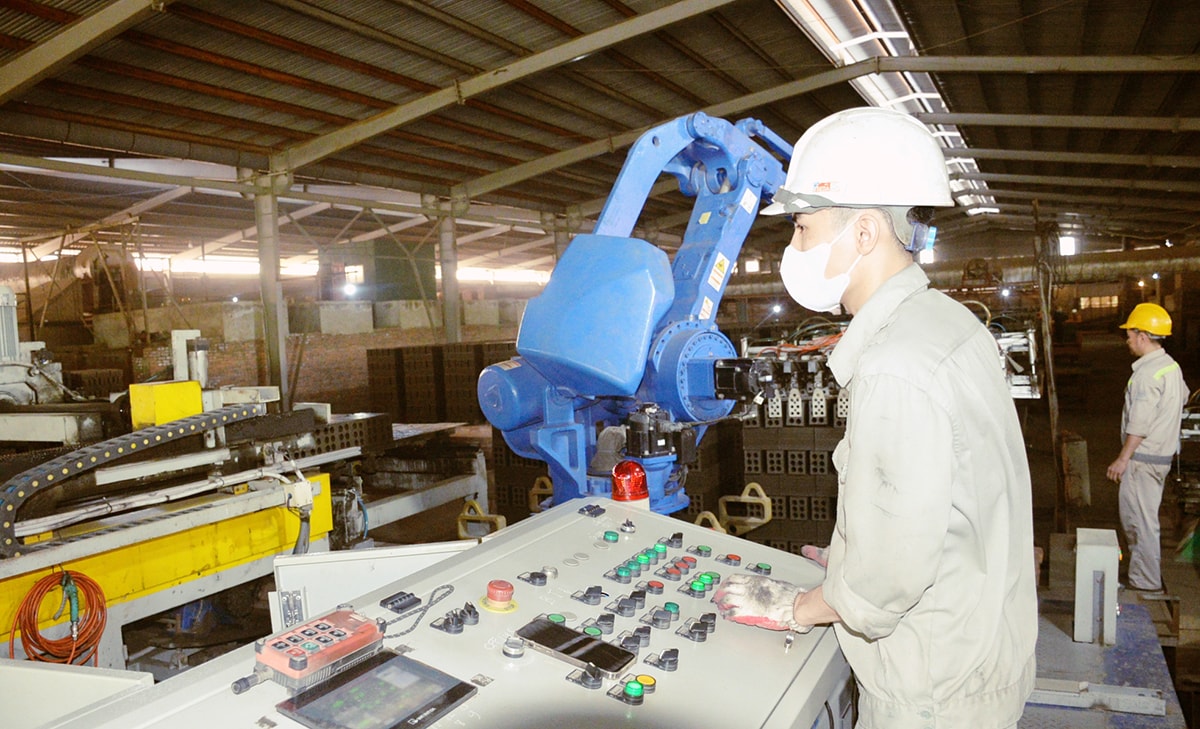
Regarding social capital – understood as social connections, social networks, trust, and relationships – in the context of the current 4.0 technology revolution, social capital plays a particularly important role in the economic development of many entities, from countries, regions, localities, to businesses, households and individuals.
Social capital with specific components such as social connections, social networks, trust, and reciprocal relationships can promote economic development in many different aspects such as diversifying investment opportunities, expanding production scale, promoting consumption of goods and services, creating employment opportunities, and increasing income. In the current context, the economic growth process is determined by the rapid development of the digital economy, sharing economy, creative economy, cross-border e-commerce, and global production networks with enterprises producing goods and providing services in many different countries, closely linked together, interdependent, and participating together in the process of production, distribution, maintenance, and warranty of goods and services.
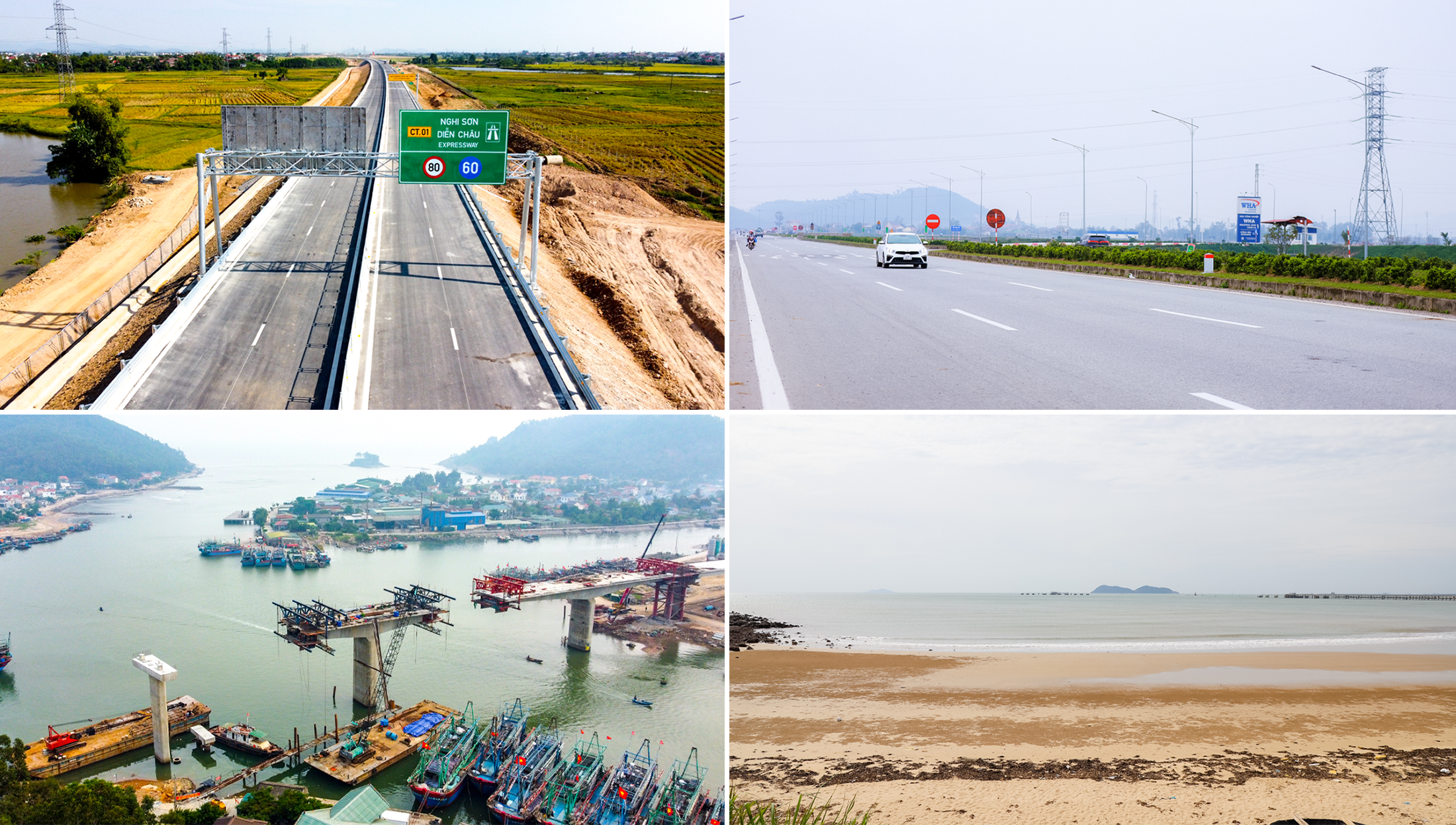
In that context, social connection, social network, social trust, and interactions between subjects are the foundation of economic activities, the key factor for economic growth. Without social connection, social network, and interactions between subjects in the economy, economic activities can hardly operate effectively. Without trust between subjects in the economy, economic transactions can hardly take place or, if they do take place, can hardly be maintained sustainably. In other words, social capital is one of the important driving forces of the economy.
In fact, Nghe An has a huge potential for social capital. Speaking of Nghe An, in addition to the tradition of studiousness, other outstanding qualities of Nghe An people that cannot be ignored are frankness, honesty, rich emotions, sincerity in communication and behavior, and especially a high spirit of community cohesion. These are the important characteristics that create the social capital of Nghe An from tradition to modernity. In the current context, social capital with specific elements including social connections, social networks, trust, and mutual relationships of Nghe An people is not only limited to the type of social capital that is clustered inward, that is, social capital within the locality, but is also expanded through the type of social capital that reaches outward, that is, social capital that goes beyond the boundaries of Nghe An and beyond national borders, reaching out globally. This is a great potential for the rapid and sustainable economic development of Nghe An in the context of the 4th Industrial Revolution with the current process of globalization and deep international economic integration.

Reporter:According to the professor, how to promote human capital and social capital to realize the goal of "Building Nghe An to become a well-off province of the country, with fast and sustainable economic development, imbued with the cultural identity of Vietnam and Nghe An" as set out in Resolution 39 of the Politburo, Nghe An Provincial Planning for the period 2021 - 2030, with a vision to 2050?
Prof. Dr. Nguyen Tuan Anh:As mentioned above, Nghe An has great potential in human capital and social capital. It is important that Nghe An's social capital and human capital must always be created, maintained and developed. Many researchers in the world have emphasized that in order to create, maintain and develop human capital and social capital, there must be appropriate short-term and long-term strategies. Therefore, Nghe An needs to continue to emphasize that human capital development is a strategic breakthrough in the province's development policy. From policy to the actual implementation of the province's development policy, human capital must be affirmed as a decisive factor in the process of promoting the development and application of science and technology, restructuring the economy, transforming the growth model, promoting competitive advantages to ensure Nghe An develops quickly, effectively and sustainably. Besides human capital, social capital must also be given special attention in the current and future development process of Nghe An. Creating, maintaining and developing social capital should be considered a priority policy in the development process of Nghe An. The development of social capital in Nghe An is not only limited to social capital clustered within Nghe An but also needs to pay special attention to creating, maintaining and developing social capital beyond the boundaries of the locality and national borders, reaching out to the world. In fact, Nghe An people live, study, work and contribute in all regions of the country and many countries around the world. This is an important basis for creating, maintaining and developing human capital and social capital in Nghe An.

In addition to creating, maintaining and developing human capital and social capital, it is important to effectively use these two types of resources for economic development. Many researchers in the world emphasize that in certain favorable contexts, human capital and social capital can be converted into economic capital, or more generally, human capital and social capital form the foundation and key factors of the economic development process. Therefore, it is especially important for Nghe An not only to create, maintain and develop human capital and social capital but also to use human capital and social capital effectively for economic development. It is worth noting that appropriate policies, especially the implementation of effective policies to create a favorable environment for the use of human capital and social capital in economic development, need to be given special attention.
In short, from a certain perspective, in the context of the current development of the Fourth Industrial Revolution, economic wealth depends largely on the wealth of human capital and social capital. Therefore, the important strategy is that Nghe An must turn the development potential in terms of human capital and social capital into economic development momentum, so that Nghe An's economy can develop rapidly and sustainably to achieve the goals set out in Resolution 39 of the Politburo, Nghe An Provincial Planning for the period 2021 - 2030, with a vision to 2050.
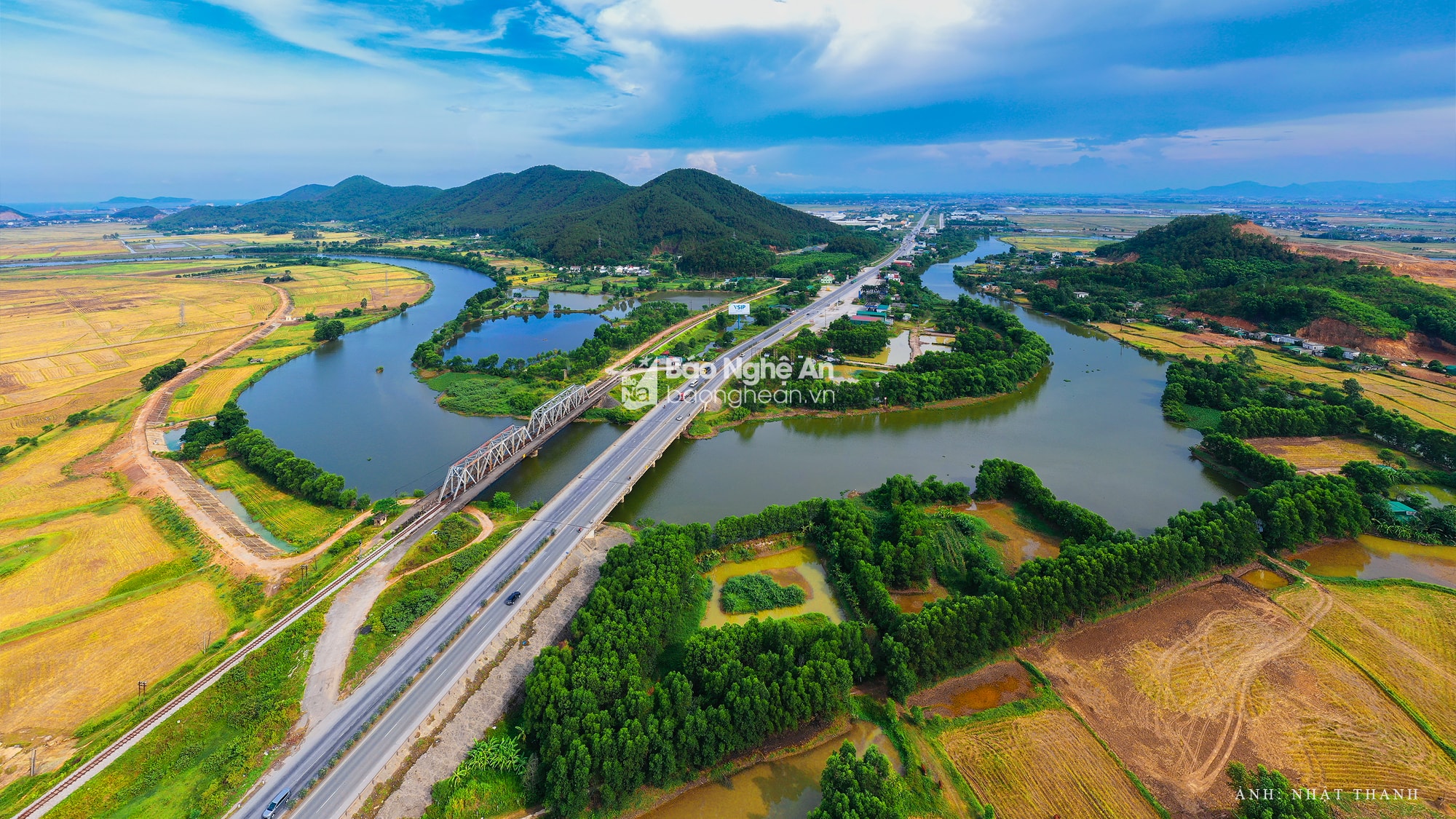
Reporter:In the context of the 4th Industrial Revolution and the current globalization process, could you please tell us what points need to be focused on in the process of building and promoting Nghe An culture as determined in Resolution 39 of the Politburo and the Nghe An Provincial Planning for the period 2021 - 2030, with a vision to 2050?
Prof. Dr. Nguyen Tuan Anh:Many people worry that the Fourth Industrial Revolution and the globalization process that has been taking place extensively today are like a flood sweeping across the globe, eroding the cultural identity of local communities, and creating a trend of cultural "uniformity". Even more pessimistic people worry that this process may lead to the Westernization of cultural values, the invasion of Western culture to other countries around the world. At the other extreme, many opinions believe that the Fourth Industrial Revolution and globalization cannot change the cultural identity of local communities because each community has its own endogenous mechanisms to preserve its own cultural identity. In between these two extremes, the middle view believes that the culture of local communities is both preserved and has certain changes in the context of the Fourth Industrial Revolution and the current globalization process.
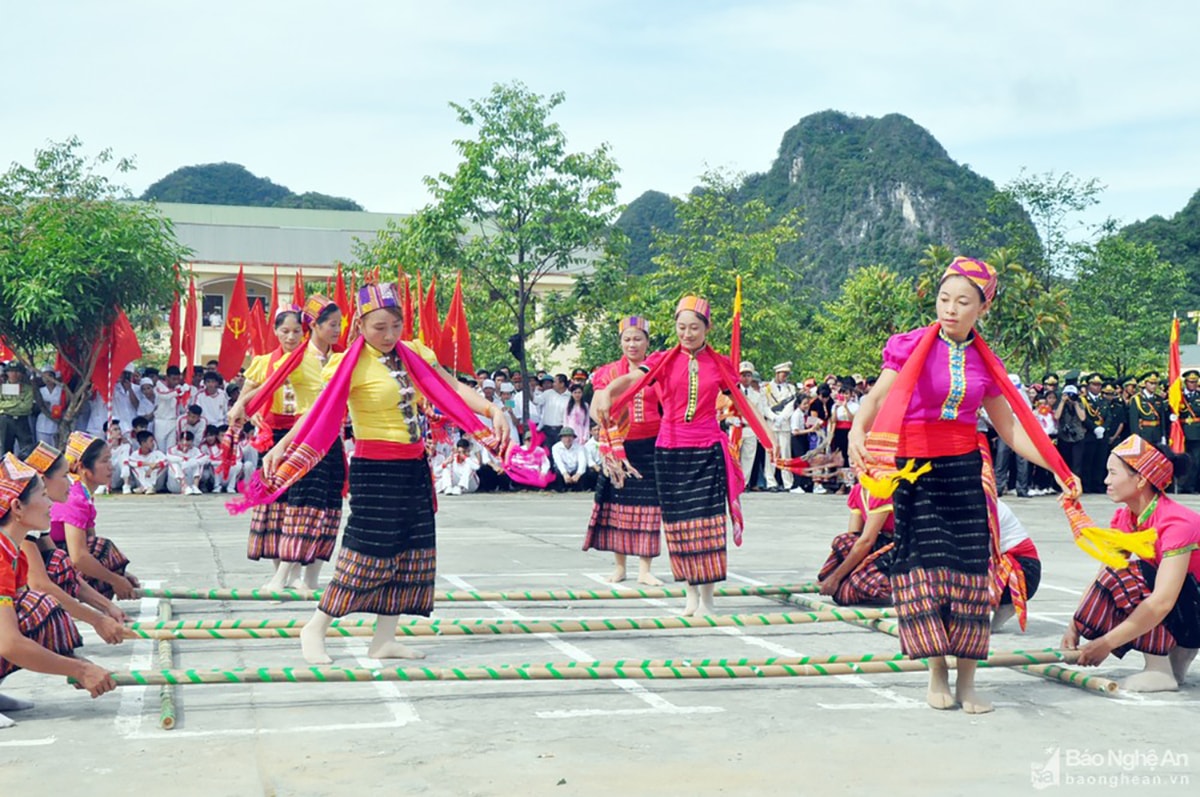
From a certain perspective, the Fourth Industrial Revolution and the globalization process have had, are having, and will have a profound impact on local culture in general, including Nghe An culture. However, many unique and outstanding values that create the cultural identity of Nghe An will continue to be affirmed, preserved, and spread in the current and future development process. The land and people of Nghe An with their qualities, intelligence, and creativity always create an endogenous strength to build, promote, and spread their cultural identity.
However, in the context of the 4th Industrial Revolution and the current globalization process, cultural identity should not be understood mechanically as "unchangeable" characteristics. The cultural identity of Nghe An will not be lost or eroded, but will change and transform through localization and hybrid mechanisms to absorb values and progressive cultural elements in the context of the complex and interdependent circulation of capital flows, goods flows, services flows, human resources flows, information flows, images, etc. on a global scale in the context of the 4th Industrial Revolution and the current globalization process.

Therefore, it is important that the current and future development mechanisms and policies of Nghe An need to focus on creating conditions for the continued preservation of the unique cultural values that have been accumulated over thousands of years in Nghe An, along with absorbing the cultural quintessence of the new era, the era of the 4th industrial revolution and the current extensive globalization process. Therefore, Nghe An culture is not only based on the inherent traditional cultural values but also needs to absorb the cultural values of the times to create outstanding characteristics of the land and people of Nghe An. In addition, Nghe An's development mechanisms and policies need to pay special attention to Nghe An culture, and must always consider this a particularly important resource for the comprehensive development of Nghe An homeland.
Nghe An culture is not only the spiritual foundation of Nghe An people, but also a solid foundation for the rapid development of Nghe An province's cultural industry in specific fields such as cultural tourism, performing arts, fine arts photography, advertising, cinema, handicrafts, radio and television... based on the orientation of the "Strategy for the development of Vietnam's cultural industries to 2020, vision to 2030". It is important to pay special attention to the creation, maintenance and effective use of human capital and social capital for rapid and sustainable development of cultural industry in Nghe An.
PV:Thank you very much professor for the exchange!
